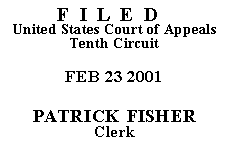

| UNITED STATES OF AMERICA, | No. 00-3212
(D.C. No. 99-CR-10116-01-JTM) (D. Kan.) |
On appeal, Magallanes's counsel has filed a brief in accordance with Anders v. California, 386 U.S. 738 (1967), and a motion to withdraw as counsel. We have reviewed the briefs, including Magallanes's pro se filings, and have made an independent review of the record. We GRANT what we have construed as Magallanes's motion to file a supplemental brief, and have considered that brief as well. Because we find no error in the proceedings below, we GRANT counsel's motion to withdraw.
We review the voluntariness of a guilty plea de novo. See United States v. Kramer, 168 F.3d 1196, 1200 (10th Cir. 1999). The record does not support Magallanes's contention that his plea was coerced. It appears that the district court inquired carefully into the voluntariness of the plea at the time it accepted it. (Vol. II, doc. 72, at 11.) He was told that the jury was ready and he could proceed to trial if he so wished. (Id.) Other than Magallanes's assertion that he was coerced, we see nothing in the record that casts doubt on the voluntariness of his plea.
We review the district court's denial of a motion to withdraw a guilty plea for an abuse of discretion. See Kramer, 168 F.3d at 1202. A defendant must show a "fair and just reason" to allow withdrawal, and we have set forth specific factors for the district court to consider:
(1) whether the defendant has asserted his innocence; (2) prejudice to the government if the motion is granted; (3) defendant's delay in filing the motion; (4) inconvenience to the court if the motion is granted; (5) defendant's assistance of counsel; (6) whether the plea was knowing and voluntary; and (7) the waste of judicial resources.
Id. In this case, although the district court did not specifically discuss each of these factors, it is apparent that withdrawal would have prejudiced the government and wasted judicial resources. Magallanes's case was ready to be tried, and the government represented to the court that it had its witnesses present. (Vol. II, doc. 72, at 5.) Jury selection had already begun. (Id.) If Magallanes were permitted to withdraw his plea, the witnesses would have to be recalled and jury selection would have to begin anew. In addition, as noted above, we find that the plea was knowing and voluntary. Finally, Magallanes had assistance of counsel throughout this process. Although he now asserts he received ineffective assistance, we note that at the time he stated he was satisfied with the representation he received at the sentencing hearing where his motion to withdraw the plea was considered. (Id. at 15.) Even if we were to assume that the other factors weighed in Magallanes's favor, under the circumstances the district court did not abuse its discretion in denying his motion to withdraw his guilty plea.
Magallanes attempts to assert that he received ineffective assistance of counsel. We do not believe the record is fully developed on this issue. If he wishes to pursue the matter, Magallanes should file a motion under 28 U.S.C. § 2255. This will allow the district court to consider the matter in the first instance and create an adequate record for appellate review. See United States v. Galloway, 56 F.3d 1239, 1240 (10th Cir. 1995) (en banc).
For substantially the reasons given by the district court, we AFFIRM.
ENTERED FOR THE COURT
David M. Ebel
Circuit Judge
*.After examining the briefs and appellate record, this panel has determined unanimously to grant the parties' request for a decision on the briefs without oral argument. See Fed. R. App. P. 34(f) and 10th Cir. R. 34.1(G). The case is therefore ordered submitted without oral argument. This Order and Judgment is not binding precedent, except under the doctrines of law of the case, res judicata, and collateral estoppel. The court generally disfavors the citation of orders and judgments; nevertheless, an order and judgment may be cited under the terms and conditions of 10th Cir. R. 36.3.
1.We do not have the transcript of the guilty plea in the appellate record. Accordingly, all we have to go on is the transcript of the hearing where Magallanes sought to withdraw his plea.